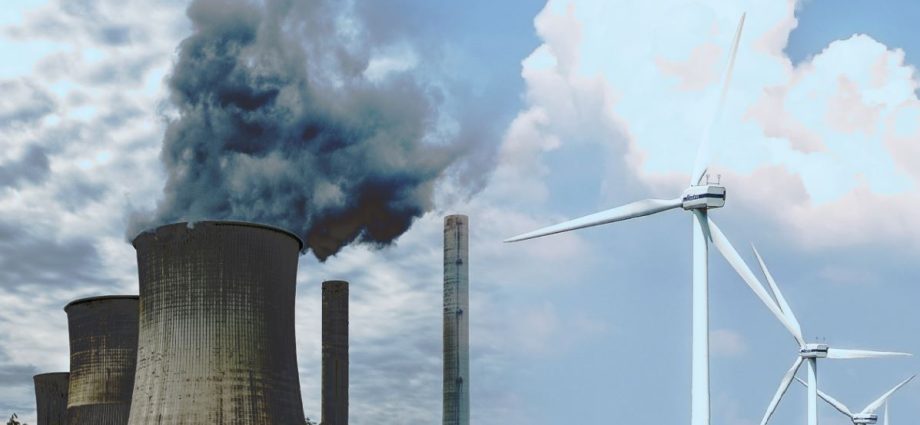Pakistan’s path to sustainable energy sector navigates through transition from fossil fuels towards green energy: Experts
Say we need to prioritize Indigenous renewable sources economically viable for clean energy
ISLAMABAD ( WEB NEWS )
The leading energy experts and economists underscored the urgent need for Pakistan to upscale its renewable energy solutions and accelerate the transition from fossil fuels with a dedicated framework on clean energy transition.
The Sustainable Development Policy Institute (SDPI) hosted a virtual high-level policy roundtable discussion on “The Fossil Fuel Blind Spot at COP29” here on Thursday. In his opening remarks, Dr. Khalid Waleed, an energy expert at SDPI, emphasized that localizing renewable energy technologies is pivotal for developing nations like Pakistan to achieve energy security. He highlighted the necessity of adopting best practices from the Global North through technology transfer and information diffusion.
“Pakistan has overinvested in coal plants to address the energy accessibility crisis, leaving us grappling with underutilized projects that strain national finances,” said Dr. Waleed. Incorporating local coal into the energy mix may create future challenges under international mechanisms like the Carbon Border Adjustment Mechanism (CBAM), he warned. He called for strategic partnerships, such as Just Energy Transition Partnerships (JETPs), and market-based mechanisms like the Coal to Clean Credit Initiative, to facilitate a smooth energy transition.
Zainab Babar, Researcher from SDPI shared the findings of her latest report on “Transitioning away from Coal: An orderly retirement of coal power plants in Pakistan”. She highlighted Pakistan’s reliance on RLNG and coal as major fossil fuels while discussing the global trends in the transition from coal to clean and how Pakistan can be a part of the solution. She emphasized that the strategically suitable and economically viable case for Pakistan is to retire the inefficient coal power generation, this will improve Country’s Global Positioning, will make industry Globally compatible and will provide the opportunity to yield substantial financial returns by earning carbon credits through avoided emissions.
Dr. Majid Bilal from the Indus Consortium highlighted five key principles for clean energy transition including good stakeholder engagement at local community level for planning and decision making, social protection measures for local communities to ensure energy transition, train workforce from local communities by improving curriculum, capacities, diversification of communities and promotion of SMEs to create localised jobs. “Our transition should be focussed on gender-based transition as well to increase women workforce share in the energy sector. Youth and women should be catered for in this transition,” he added.
Julia Skorupska, Head of Secretariat, Powering Past Coal Alliance proposed blended finance as a solution to expedite coal plant retirements. “Public finance is scarce, but available funding remains underutilized. Governments need to align tariffs and commit to halting further coal plant construction,” she remarked.
Ms. Skorupska underlined that there were multiple examples of public and private finance utilisation in supporting energy transition that can be worked out keeping in view the successful models.
Afia Malik, Senior Economist at PIDE, presented compelling data on the long-term benefits of renewable energy. She highlighted a potential $78 trillion net gain globally by the end of the century from renewable energy adoption, noting that renewables could generate three times more jobs than coal power plants. “The upfront costs are high, but the dividends in economic growth and innovation far outweigh these challenges,” she stressed.
Dr. Majid Ali, Associate Professor, USPCASE, NUST said Pakistan’s growing adoption of solar energy, driven by rising energy costs. Despite importing $2.5 billion worth of solar panels in 2023, solar energy accounts for just 1.5% of the energy mix, compared to coal’s 16%. He called on the Pakistani government to renegotiate terms with China, the primary owner of its coal plants, and explore climate swaps to reduce retirement costs.
Selina Irfan, Advisor SDPI emphasized the need for immediate action, advocating for the optimization of local resources rather than waiting for long-term solutions. “Pakistan must focus on available technologies, including clean coal washing, electrostatic precipitators, flue gas desulfurization, and low-NOx burners, while simultaneously retiring coal power plants,” Irfan suggested. She added that the Integrated Generation Capacity Expansion Plan (IGCEP) should be revised to align with these goals. However, high upfront costs remain a significant hurdle, making it critical to consider both short-term and long-term scenarios, Irfan cautioned.
Irfan Pervaiz, Deputy Director (Environment/New Technology) from PPIB raised concerns over the significant financial implications of early coal power plant retirements under the China-Pakistan Economic Corridor (CPEC) projects. He emphasized the need for strategic planning to manage these challenges. “CPEC projects involve substantial costs in the event of early coal power plant retirements,” Pervaiz stated, adding that an immediate shutdown of these plants would impose a heavy financial burden on the country. Pervaiz suggested that innovative financial mechanisms, such as climate swaps, could mitigate these costs.
Shakeb Elahi, Senior Advisor at SDPI, concluded the discussion by emphasizing the critical nature of energy transition. “This is not just a matter of policy—it’s a matter of survival,” he stated. He underscored Pakistan’s need to urgently adopt a clean energy transition framework, optimize existing resources, and secure global partnerships to navigate the complexities of early coal retirement.

